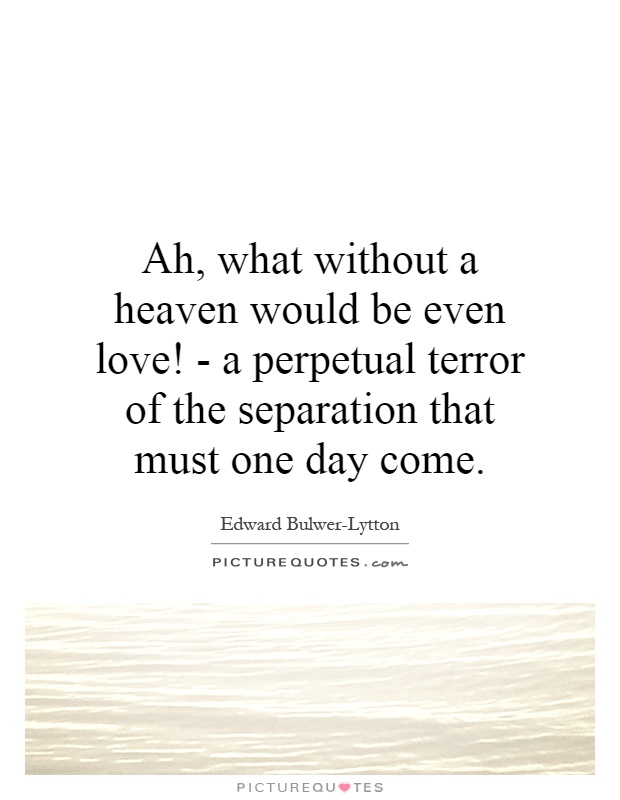Ah, what without a heaven would be even love! - a perpetual terror of the separation that must one day come

Ah, what without a heaven would be even love! - a perpetual terror of the separation that must one day come
Edward Bulwer-Lytton, a prominent English novelist and playwright, was known for his romantic and sentimental writing style. In his works, he often explored themes of love, loss, and the human experience. One of his most famous quotes, "Ah, what without a heaven would be even love! - a perpetual terror of the separation that must one day come," encapsulates the bittersweet nature of love and the fear of losing a loved one.Love, in its purest form, is a powerful and all-encompassing emotion that brings joy, happiness, and fulfillment to our lives. It is a bond that connects two souls and transcends time and space. However, as Bulwer-Lytton poignantly points out, the inevitability of separation looms over every love story, casting a shadow of fear and uncertainty.
The idea of a heaven, a place of eternal bliss and reunion, provides solace and comfort to those who are in love. It offers the hope that even in death, lovers will be reunited and their bond will endure for eternity. Without this belief in an afterlife, love becomes a source of anxiety and dread, as the prospect of losing a loved one becomes a harsh reality that cannot be avoided.
Bulwer-Lytton's words speak to the universal experience of love and loss, reminding us of the fragility of life and the impermanence of our relationships. The fear of separation can be paralyzing, causing us to cling desperately to our loved ones and to cherish every moment we have together. It is a reminder to appreciate the people we love and to make the most of the time we have with them, knowing that one day, we will have to say goodbye.












 Friendship Quotes
Friendship Quotes Love Quotes
Love Quotes Life Quotes
Life Quotes Funny Quotes
Funny Quotes Motivational Quotes
Motivational Quotes Inspirational Quotes
Inspirational Quotes